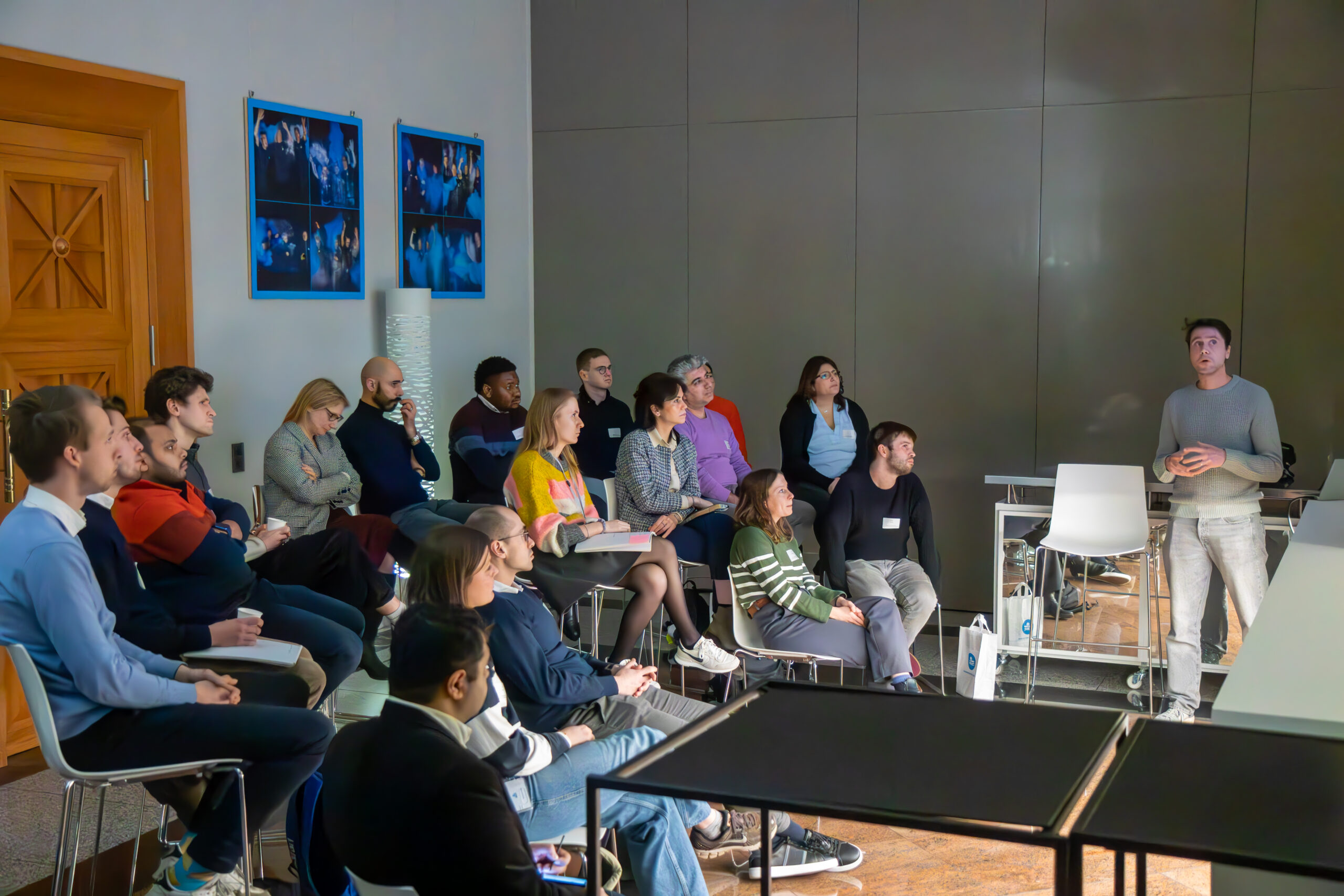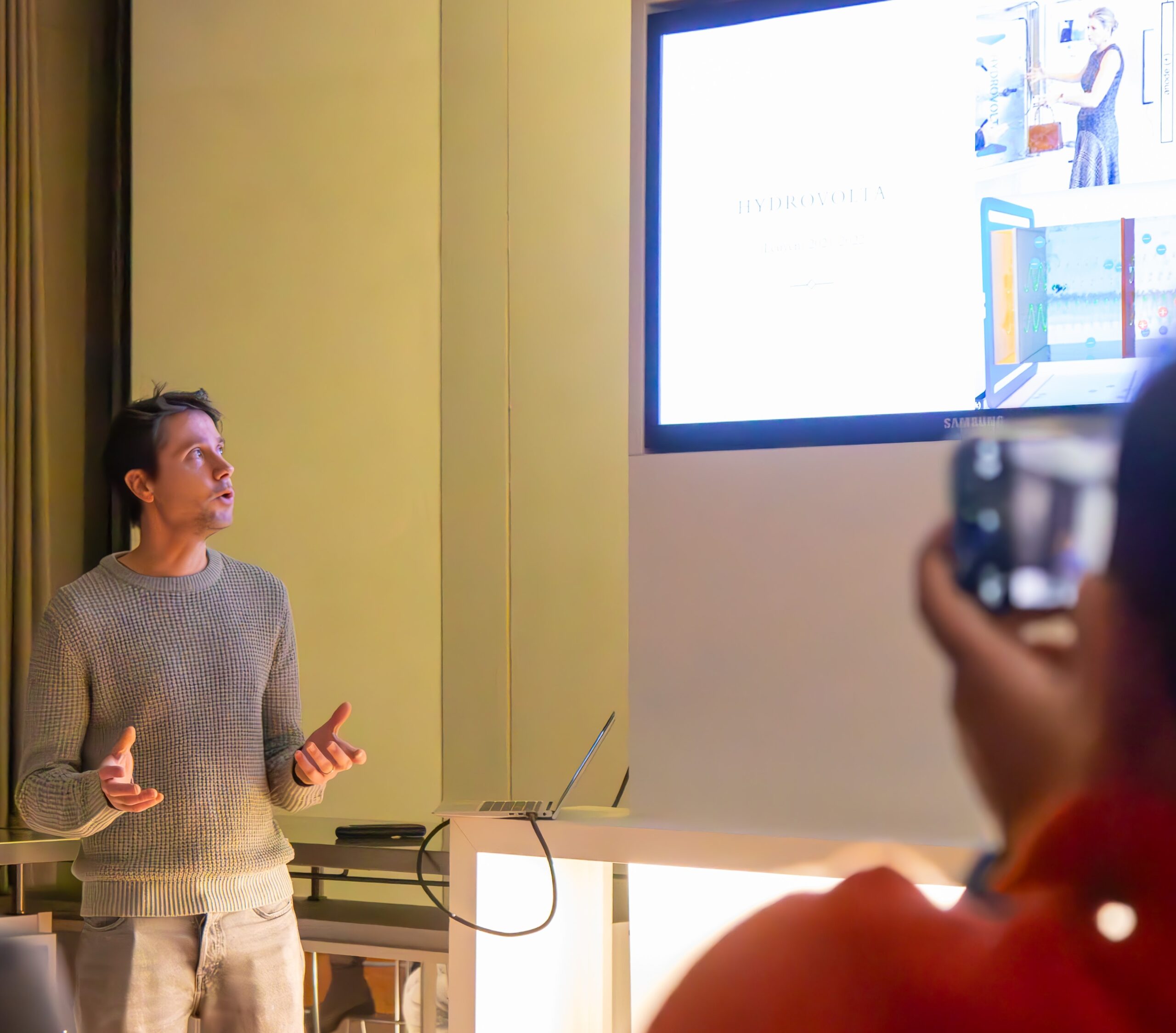Inspiring exchanges on marine carbon dioxide removal
The KBC PhD Winter School has given rise to refreshing views and engaging discussions on direct ocean capture and other so-called marine carbon dioxide removal (mCDR) techniques. Laborelec water chemistry expert Bart Ghysels outlines the challenge and the main outcomes of this PhD contest.
February 2025
Innovation as a driver for sustainability
The KBC PhD Winter School is an immersion program designed for PhD candidates and postdocs from Belgian universities. The Winter School focuses on innovation as a driver for sustainability and aims to provide participants with insights into the corporate world, labor market trends, and challenges. In the 2025 edition, participants with different educational backgrounds formed interdisciplinary teams to work on three real-world cases.
Marine carbon dioxide removal
Five teams have been working on a case proposed by ENGIE involving marine carbon dioxide removal (mCDR). “The idea of mCDR is to leverage the ocean’s natural processes to absorb and store more carbon,” explains Bart Ghysels. “A key method being researched is direct ocean capture, involving extraction of carbon from seawater to cause the ocean restoring the equilibrium by absorbing carbon from the air. This method could be more efficient than direct air capture, because of the higher carbon concentrations in seawater compared to those in the air. And it could have a dual effect, because it would help to reduce ocean acidification, thereby further increasing the ocean’s capacity to absorb carbon.”
The idea of mCDR is to leverage the ocean’s natural processes to absorb and store more carbon,…
Which points to ocean alkalinity enhancement, another mCDR technique being researched. “Ocean alkalinity enhancement involves adding alkaline substances to seawater,” says Ghysels. “These substances react with CO2 to form stable bicarbonate and carbonate ions, making place for more CO2 to be captured.”
These techniques are still in various stages of research and development. “Many aspects still have to be studied, including their scalability, effectiveness, and the potential impact on the environment,” says Ghysels. “What’s more, legal and social aspects need to be taken into account if such methods are to be deployed on a large scale. That’s why we thought this would be a fascinating case to present to these multidisciplinary PhD teams. And it fits Laborelec like a glove. I’m a postdoc myself, and there are many more of them working on energy transition subjects at Laborelec.”
Benchmarking marine CDR with land-based CDR approaches
The results of the contest were very satisfying. “All five teams have delivered outstanding studies on benchmarking marine CDR with land-based CDR approaches,” concludes Ghysels. Two teams particularly stood out: one for its very well-structured CDR benchmarking methodology, and the other for setting up an online survey to probe public perception on ocean-based CDR. These teams will receive an invitation to present their views at Laborelec, giving them the opportunity to get to know our site and exchange ideas with our CDR experts in a spirit of fostering new partnerships and engagements.

